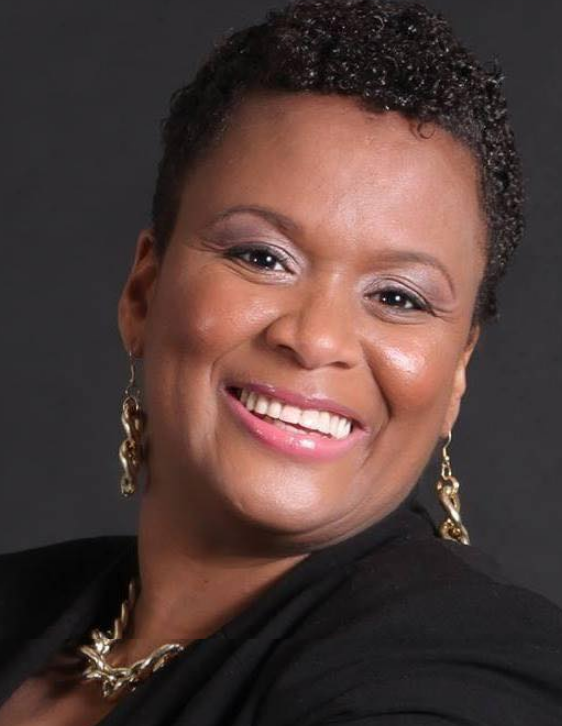Best rated study abroad assignment ghostwriting experts for chinese students USA: Educational Technology , this is a paradise for technology lovers! Combining modern technology and education to make students learn more excitingly. The difficulty lies in finding the sweet spot between educational theory and technological means to create an eye-catching learning experience. Special Education is a field that requires patience and love. Special supports and strategies must be provided to students with special needs. A deep understanding of various disorders and diseases is required in order to tailor appropriate teaching programs for them. Multicultural Education (Multicultural Education) is a field that emphasizes tolerance and understanding. We have to find ways to allow students from different cultural backgrounds to find a sense of belonging here. The difficulty lies in treating every student fairly so that they can shine on the big stage of education. Discover more information on https://www.enlunwen.net/.
We write for different genres. We will assign high-quality writers in different fields to ensure your quality. Payment for each writing type is flexible and supports installments, and all enjoy timely preferential policies. For details, please contact customer service QQ/VX: 7878393. Understand the importance of homework writing tutoring in the United States : We are well aware of the importance of assignment writing in the United States. It is a key to opening the door to studying abroad smoothly. For many international students, language barriers and cultural differences are the first difficulties they need to overcome. Even if they have received adequate English training before going abroad, they still feel at a loss when faced with academic papers and reports in professional courses once they are in the academic halls of American classrooms.
When studying abroad, each school has different requirements. Our professional team has rich experience and accurately grasps the standards of each school. The services we provide you perfectly meet your requirements and make learning easier! Have you ever been worried about your grades? Let us help you! Using our professional writing service can not only improve your academic ability, but also directly improve your grades and create a more perfect you! With 24/7 customer service, we promise to provide you with a safe service experience and we will be with you from the beginning to the end. Trust us to make your study abroad trip easier and more enjoyable.
Generally, people who use ghostwriters are busy doing fascinating stuff. That means that their minds are crammed with interesting information, and with so much on their plates, they may not always be the most organized speakers. They probably didn’t have time to document exactly what they would like to talk about, and they might interject an off-topic fact or two. Data is in almost every business article these days, and rightly so. Nothing can support an argument quite like the perfect statistic or chart. The problem is there are plenty of statistics out there that aren’t perfect. Sometimes, a subject offers up great data to support their points, and other times … less great. But I try to keep in mind that I’m not the expert here — there’s a reason why the subject used this specific piece of data, and it’s not up to you to judge whether it’s up to par.
Ghostwriting, taking exams for exam agencies and writers running away are happening almost every day. What we international students need to do is to distinguish between true and false, not to be greedy, and do not believe that the sky will fall, basically it will not be intentional. It is used by people who have been deceived, and many of the deceived classmates are just looking for laziness and greed. I believe that everyone has a certain understanding of the ghostwriting industry through our website. Why North American students have such a deep bond with homework ghostwriting and exam proxy platforms. This is not only to help them complete their homework, but also a kind of It is a kind of consolation for you to be alone in a foreign country. The essayist Liu Liangcheng once said: “We cannot see all the snow that falls in one’s life. Everyone spends the winter alone in his own life.” It can be seen that the loneliness in the hearts of North American international students living in a foreign land, and what a formal and reliable homework writing and exam agency should do is to relieve the troubles of homework and relieve the loneliness of international students.
Now, whenever you hire our homework writing service, we work to ensure that all the homework writing hallmarks are fulfilled. This is why our site is the best to deal with. Every assignment given by your lecturer in Australia has a purpose. You can only score high when the paper you present fulfils that purpose. Another hallmark of a good assignment is efficiency. Consider whether what you are presenting took you some good academic effort to come up with. This is a pointer to its efficiency. If it requires a lot of thinking, then it is efficient.
Consider the Price: Though you may want to save some money, it’s often best to work with a company that is reputable. This usually means paying more for the work. You can save money or time, but in life, you can rarely do both. Remember, if it was that easy, you could do it yourself. Therefore, make sure you’re willing to pay to get the right service for yourself. Your instructor could ask you to write a variety of essay styles, so it is best to work with a company that can write anything. That way, you can go to the same source for all of your essay-writing needs.
For our chinese guests:
以上只是我们代写服务能帮你搞定的热门教育学子领域的一部分哦!如果你有其他需求或者想了解更多,随时联系我们吧!教育学的复杂性和广泛性意味着学生在学习过程中可能会遇到各种各样的挑战。无论你面临的是哪个子领域的问题,我们的代写服务都可以为你提供专业、高效、原创的帮助。鉴于此,如果你在教育学的学习上有任何困惑或需求,不要犹豫,立刻与我们取得联系。我们的专家团队将为你提供最贴心、最专业的服务。联系我们,让我们共同探索教育学的奥秘,解锁你的学术潜能!
我们的服务优势:我们的专业写手团队具备深厚的学术背景和丰富的写作经验,能够快速准确地理解各类文本和观点。在撰写Essay时,我们会帮你梳理逻辑框架,确保你的分析有条有理。 批判性思维 – 批判性思维是Critical Analysis的核心。它要求你在分析过程中保持客观、公正的态度,对文本、观点或现象进行质疑、比较和评价。这需要你运用归纳、演绎、因果分析等多种思维方法,以揭示事物的本质和内在联系。我们的服务优势:我们的写手团队经过严格的选拔和培训,具备出色的批判性思维能力。在撰写Essay时,我们会教你如何运用批判性思维来审视问题,从而使你的分析更具深度和说服力。
你是怎么看待代写Assignment?代写,一直被讨论的话题。有人说,它存在于道德的灰色地带,是对知识的亵渎;而也有人认为,它如同一个指引,帮助迷航的人找到前进的方向。真正的知识,不仅仅是文字上的累积,更是心灵的觉醒。在这样的认知下,Assignment代写,实际上只违反了表面的道德层面。因为,真正的知识,不是从书本上学来,而是从生活中体验、从心中感悟。不少学子在追逐知识的路上,因为种种原因,而略显疲惫。这时,一个靠谱的代写,就如同一个指引灯塔,照亮他们前行的路。它不仅可以帮助学子改善GPA,更重要的是,为他们争取到宝贵的时间,去探索更广阔的知识领域,去体验更丰富的生活。如同天空中那闪烁的星辰,代写并不是知识的终点,而是一个起点。它指引我们寻找真正的知识之路,鼓励我们不断地自我挑战、自我超越。因此,当我们在评判代写时,不妨换一个角度,看看它背后所隐藏的深邃意义。
留学生活是一段充满未知和挑战的奇妙之旅,承载着我们对学术和职业机遇的无尽探索。踏足这片美梦成真的土地,众多留学生为了追寻更高的学术境界,毅然决然选择融入美国的顶尖学府。然而,追求梦想的同时,他们面对的也是一重重艰辛和学术困境。但请放心,就在你身旁,有着作业代写,exam代考,网课带上,论文代写,编程代写,到论文精修的全方位解决方案,让你轻松应对学术挑战,顺利攀登学业高峰。美国作业代写,保证成绩,守时交付,已运行10年值得信赖 在此教育网站上了解更多详细信息 essay代写.
首页写作技巧 – 当您考虑选择英文论文代写服务时,确保您做出明智且负责任的决策至关重要。这不仅关乎您的学术成就,还涉及您的金钱和时间投资。以下是在选择英文论文代写时需要注意的关键要素,以及我们机构如何满足这些要素,为您提供卓越的服务。 选择英文论文代写时需注意哪些关键要素? 专业能力与学术背景 首先,要考察代写机构的专业能力和学术背景。一篇高质量的英文论文需要深厚的学科知识和良好的写作能力。我们的代写团队由具有丰富学术经验和专业背景的专家组成,他们熟悉各个领域的论文写作要求,能够确保您的论文既符合学术标准又具备高度专业性。
Q: 你们的代写服务是否保证原创?A: 是的,我们强调每篇文章都要100%原创。我们的团队会对每篇作品进行严格的抄袭检查,确保内容的独特性和原创性。Q: 如果我对代写的内容不满意,我可以要求修改吗?A: 当然可以。我们的目标是确保每位客户对我们的服务感到满意。如果您对所提供的内容有任何不满或需要调整,我们会及时为您修改。Q: 你们如何确保按时交付?A: 我们的团队非常重视每个客户的时间。在接受任务时,我们会明确告知交付时间,并确保在约定的时间内完成。
我们的服务优势:我们的专家团队深知批判性阅读在Response Paper写作中的重要性,因此在为客户提供代写服务时,始终将批判性阅读作为写作的基础和前提。二、批判性阅读的关键步骤 预览阅读材料 – 在开始深入阅读之前,先对阅读材料进行快速预览,了解文章的大致内容、结构和作者的观点。这有助于读者在阅读过程中保持清晰的思路,更好地把握文章的主旨。我们的服务优势:我们的专家在代写过程中,会先对客户提供的阅读材料进行仔细预览,确保对文章的整体内容和结构有充分的了解,从而为后续的批判性分析和论文撰写奠定坚实基础。
